Technology in the 2019 Namibian Elections
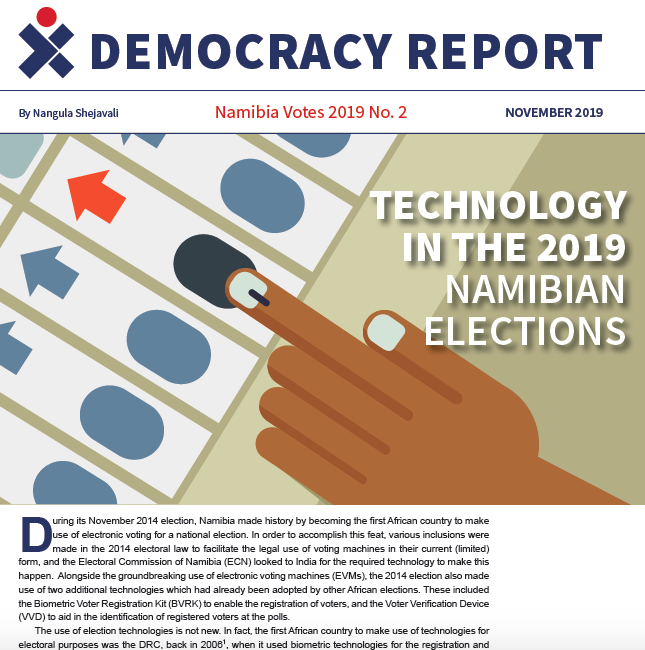
Despite using electronic voting machines at national and sub-national elections in 2014 and 2015, many voters and parties still hold strong suspicions about EVMs and the use of technology in general at polling stations. This briefing paper examines the use of various technologies at Namibian elections – from biometric registration kits through voter verification devices […]
A Critical Look at Party Manifestos for the 2019 Elections

This paper highlights key issues in the manifestos made available by political parties and candidates before the November 27 2019 national elections in Namibia.
Namibian Political Finance
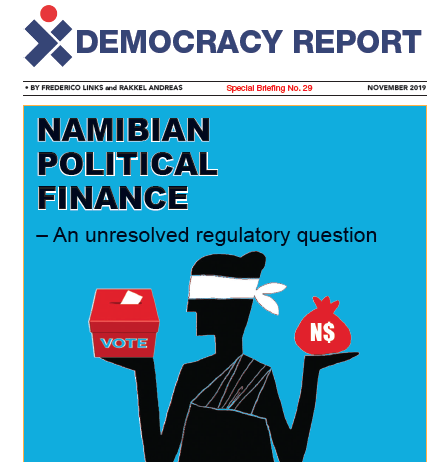
A new paper looking at whether the laws and regulations on the financing of political parties are working
Fake News & Namibian Elections
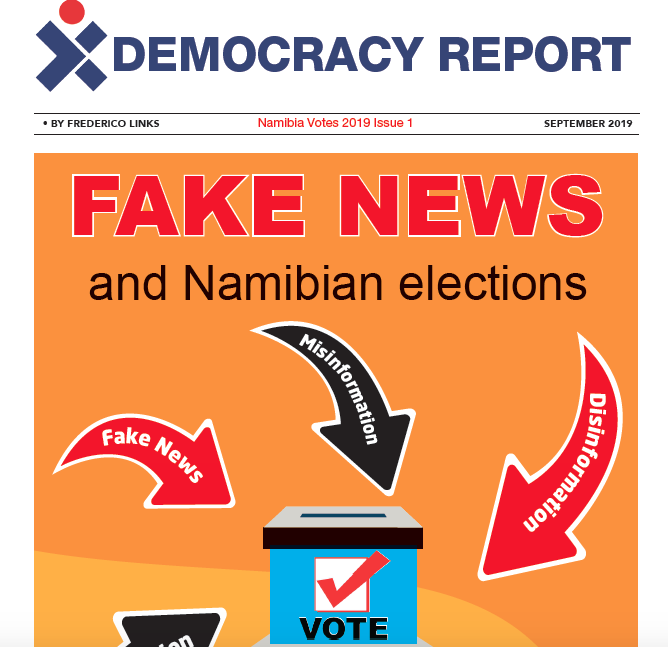
‘Fake news’ –misinformation, disinformation and propaganda – is very much a reality in Namibian political and electoral processes. Various social media platforms have become the preferred battlegrounds on which disturbing, divisive and even dangerous campaigns and content are being shared. This report describes what ‘fake news’ on Namibian social media looks like and where it […]
Digital Democracy
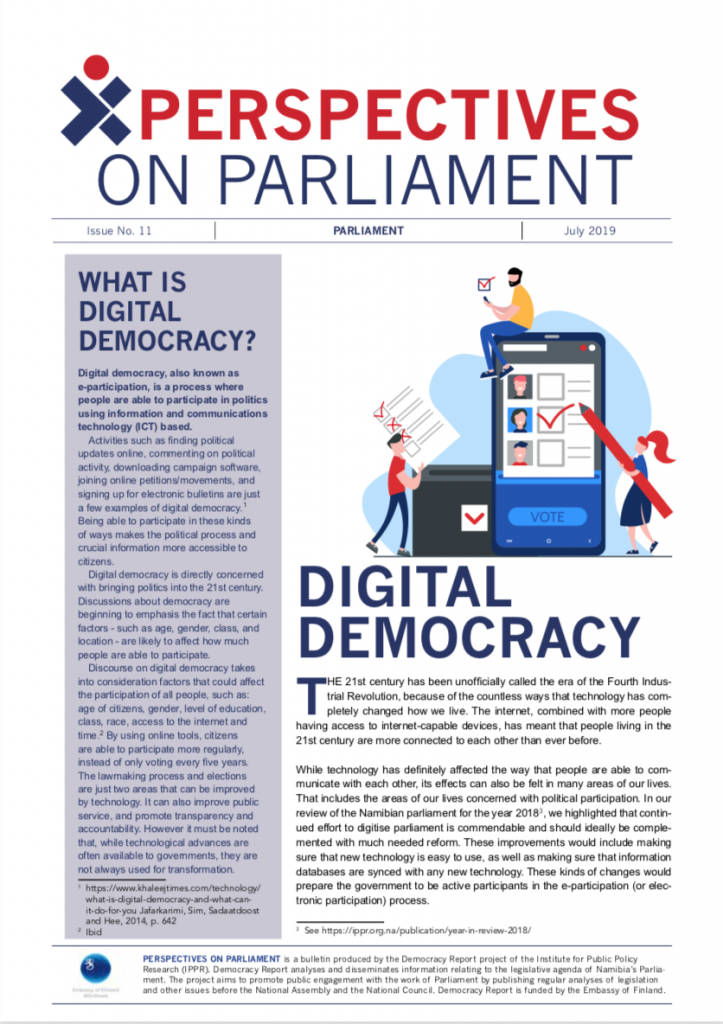
While technology has definitely affected the way that people are able to communicate with each other, its effects can also be felt in many areas of our lives. That includes the areas of our lives concerned with political participation. In our review of the Namibian parliament for the year 2018, we highlighted that continued effort to digitise parliament is commendable and should ideally be complemented with much needed reform. These improvements would include making sure that new technology is easy to use, as well as making sure that information databases are synced with any new technology. These kinds of changes would prepare the government to be active participants in the e-participation (or electronic participation) process.
How to Participate in Government

There are three branches of government: the legislative (parliament), the judiciary (courts) and the executive (parliament). The constitution is the supreme law of the country, which contains principles that keep the branches of government from interfering with each other, as each branch is meant to function independently of the other.
The public can participate in some of the actions of these branches, but only up to a certain point. Firstly, of course, Namibian citizens have a constitutional right to vote in National Elections every five years, and therefore choose the members of the National Assembly. In this way, they are able to influence the composition of the legislature and the executive, as Cabinet members are traditionally chosen from the National Assembly.
Growth at Home Four Years On
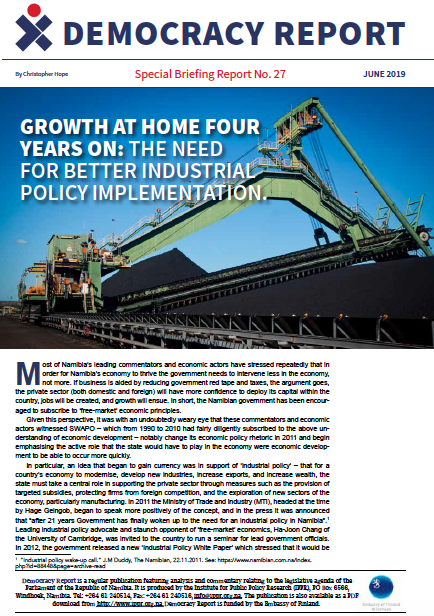
Namibia’s plan for industrialisation, Growth at Home, was adopted in early 2015. The 52-page policy guide represented a clear interventionist-turn in the government’s economic policy. As if to indicate the new approach, the Ministry of Trade and Industry was renamed the Ministry of Industrialisation, Trade and SME Development (MITSMED) in the same year. But since […]
Gender Analysis and Policy

In Namibia, as in many other countries around the world, men and women receive different treatment due to their gender. In a variety of ways – including but not limited to institutional access, social biases, and cultural values – women are disadvantaged in comparison to men. To combat this gender-based inequality, it is important that […]
Spying on Speech
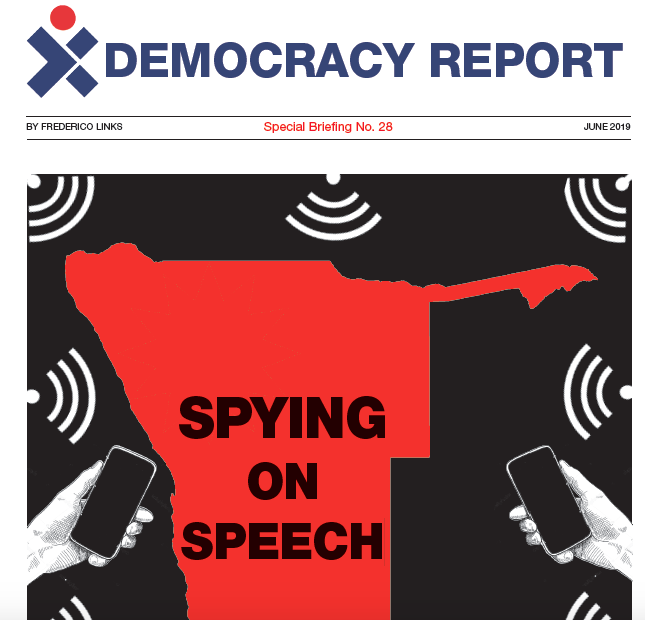
This paper examines Namibia’s approach to surveillance – in particular whether there is adequate legal oversight regarding Namibia’s intelligence services. In addition, there is a concern that Namibia’s spying services are operating in a legal vacuum as a crucial part of the Communications Act – dealing with surveillance – has not been brought into force. […]
The Budget 2019-20
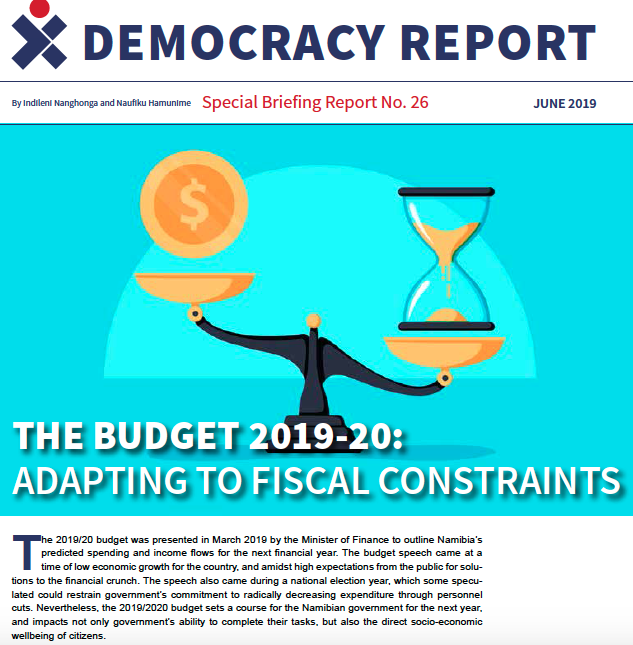
A detailed analysis of Namibia’s 2019-20 budget – including a macroeconomic overview, a look at revenue and expenditure, debt and deficit considerations, and suggestions for the way forward

